The Best Pressure Washers for Cleaning Your Car

Some people are perfectly happy washing their car by hand with a bucket of mild soapy water and soft wash mitt; some only have the time to run it through a drive-thru wash after a fill-up, and others can’t be bothered to wash their car at all. However, regular exterior cleaning will keep your vehicle in better condition in the long run, both in areas that use salt over the winter months and in places where dust, sand, and urban pollution are present.
Owning your own pressure washer will make cleaning your car (and lots of other things) quicker, easier, and more affordable. Sure, you can use one at a local coin wash, but then you have to go out of your way to get there instead of just doing it in your driveway, and a pressure washer has many other uses around the house and yard that make it a worthwhile investment. A pressure washer lets you use a foam cannon, which is our favorite way to wash a car.
There are many types of pressure washers, from gas to electric and portable to industrial strength, and what works for one household might be overkill for another. So how do you find the right pressure washer? We’ve put together this list to find you the best options for different needs and budgets and dive into what you need to look for when shopping for a pressure washer.
Before you start washing your car with a pressure washer, however, it’s extremely important to know that using the wrong setting can easily damage your car. You can force water in through seals, pop off trim, damage rubber, and even cut through paint. Always use the widest nozzle, and always keep the nozzle at least three feet away from your vehicle. With a long handle and wand, that might put you six feet or more away.
If you want to know more about the best pressure washers for cars, use the table of contents to navigate, but first, here are a few of the best gas and electric pressure washers for car washing and using around your home.
Why You Should Trust AutoGuide's Product Reviews
We drive the latest new cars, trucks, and SUVs, but did you also know the team at AutoGuide.com tests tires, waxes, wiper blades, and pressure washers? Before we recommend a product as a top pick in one of our popular product lists, our editors put it to the test. We run through all its features, test the claims that the brand makes about each product, and then give an honest opinion on what we like and don’t like from our personal experience. As experts in all-things automotive, from minivans to sports cars, and from portable jump starters to ceramic coating, we want to make sure you buy the product that’s right for you.
Table of contents
- 1. Editor's Pick: Sun Joe Pressure Washer
- 2. Best Budget Option: Portland 1750 PSI 1.3 GPM Corded Electric Pressure Washer
- 3. Worx WG630.2 Hydroshot Pressure Washer
- 4. Karcher K1700 Electric Pressure Washer
- 5. Annovi Reverberi AR Blue Clean AR383SS
- 6. Stanley SHP1600 Electric Pressure Washer
- 7. Generac SPEEDWASH 6882 Pressure Washer
- What is a Pressure Washer?
- How To Use a Pressure Washer So You Don't Damage Your Car's Paint (or yourself)
- Why do I Need a Pressure Washer to Clean My Car?
- Which Pressure Washer is Best For Me?
- What To Look For in a Pressure Washer
- Recent Updates:
1. Editor's Pick: Sun Joe Pressure Washer
With over 10,000 reviews and a good 88% positive rating on Amazon, the Sun Joe SPX 3001 is the best electric pressure washer for many people thanks to its adequate power, quiet operation, light weight, affordability, and included accessories. With a 14.5 amp/1,800 watt motor, it generates 2,030 PSI (pounds per square inch) of pressure, plus a decent 1.76 GPM (gallons per minute) water flow, which is enough for most typical household jobs, from cleaning the car, boat, and RV; to siding, decks, fences, patios, and more.
The five quick connect nozzles (0º, 15º, 25º, 40º, and soap) mean you have a variety of pressures for tougher jobs, and wider spreads for gentle work like your car. Between the 35-foot power cord and 20-foot hose, you have over 50 feet of range from the nearest outlet, and the plug features GFCI protection, so you won't cause a short circuit.
Testing the Sun Joe SPX3001
We purchased a Sun Joe SPX 3001 at retail for testing. It came largely assembled, with only a few accessories to attach. The included four spray and one soap tips store nicely, and a cord hook and hose reel are built in. The hose reel is very stiff and should have a longer crank handle, and it's difficult to coil the electric cord neatly. The first time we used it, it took a few minutes and some fits and starts to get consistent spray. It may have been working air out of the system; we're not sure. After that, it worked great. The handle has a smart built-in safety lockout and has a very light actuation, which is easy on your hands. There isn't much room at the end of the wand to use the quick connect for spray tips, and they pop off fast when you release them, but there were no leaks. We did use Teflon tape everywhere there were threads, which we think everyone should always do. We loved how quiet it was, and the auto start and stop was extremely responsive. It made adequate pressure for our favorite foam cannon.
Sun Joe is an American company founded in 2004 and offers a two-year warranty on everything they make. Unless you need more pressure from the nozzle, the convenience and features of the Sun Joe SPX3001 make it our pick for the best electric pressure washer for your car.
Pros | Multiple tips included, onboard soap tank, quiet with auto shutoff, big wheels work well on rough surfaces |
Cons | Stiff hose reel, needs better cord storage, barely enough pressure for foam guns |
2. Best Budget Option: Portland 1750 PSI 1.3 GPM Corded Electric Pressure Washer
If you don’t need a pressure washer for anything more demanding than washing your car and cleaning your fence and wooden deck and don’t want to overspend on something that’s just going to sit in the garage most of the time, then this Portland pressure washer is a great choice. It’s light and easy to use, with just the right pressure for washing your car with the low-pressure detergent bottle attachment, though, beyond that, it just has an adjustable nozzle rather than dedicated tips.
Compared to some more expensive electric pressure washers, the Portland power washer is a basic unit. But for less than the cost of renting one for a day in many places, you can own your own. Plus, the lower 1.3 gallons per minute flow rate and lower pressure are great features both for protecting automotive finishes and conserving water.
Between the very affordable price, just the right pressure for car cleaning, and positive reviews, this pressure washer ticks just about all the boxes.
Pros | Very affordable, light weight, perfect for car cleaning |
Cons | Less powerful, single adjustable nozzle, short 20-foot hose |
3. Worx WG630.2 Hydroshot Pressure Washer
If the idea of even a smaller pressure washer like the Sun Joe and Portland still seems like too much effort to schlep around, and you want something lighter and more portable, Worx has introduced a line of cordless 20-volt pressure washers. While it’s not a true pressure washer with just 350 PSI, it's more than a garden hose, and it won’t risk damaging your paint. It's enough pressure to blast dirt and grime off your car’s surface better than just the hose on its own. It has five spray angles built into its single variable nozzle, and you can connect it to your garden hose or simply draw water from a bucket or other open water source like a lake.
A great thing about the Worx that makes it one of the best power washers for cars is that it comes with a kit of attachments that are perfect for washing every part of cars, trucks, and SUVs. You get a soap bottle and accessories, which means you can do almost all of your washing just using the tool.
If you use it attached to your garden hose, you don’t need to disconnect it for watering the lawn or garden, as it has a shower setting for watering plants.
Pros | Works anywhere, light weight and truly portable, multiple settings, very compact for easy storage |
Cons | Not very powerful, expensive for lower pressure |
4. Karcher K1700 Electric Pressure Washer
Another good option using electric power in the middle range for pressure is the Karcher K1700. As the name suggests, it produces 1,700 PSI, and the Karcher is built around convenience, with big wheels, so it’s easy to move around, a removable bucket that doubles as hose storage, and a removable half-gallon soap tank. The K1700 also features a handy foot-operated on/off switch, and although it doesn’t have a hose reel, the power cord storage is at the very top of the handle, so you don’t have to bend down to stow it neatly. Although it only has three nozzles, they are the three most useful ones, a turbo nozzle for focused cleaning power, a 15-degree all-purpose nozzle, and one for soap application.
While many brands only offer a one-year warranty, Karcher backs up their product with a limited three-year warranty with a rapid exchange program should you encounter any issues covered by the warranty. Areas of concern are the short hose and reports of a malfunctioning soap dispenser.
Karcher offers other models up to 2,000 PSI if you like this one but want more power, including a compact 1,700 PSI Cube, which trades off capacity for a compact form factor.
Pros | Removable bucket that doubles as convenient storage, compact size good for storage, onboard detergent tank, best seller, 3-year warranty |
Cons | Shorter 20-foot hose, some users report leaking, malfunctioning soap dispenser, not very powerful, just three nozzles |
5. Annovi Reverberi AR Blue Clean AR383SS
You might never have heard of Italian company Annovi Reverberi, but they're pressure washing specialists that have been in business for over 50 years. They make both home and commercial electric pressure washers, and their AR Blue Clean consistently appears on lists of the best pressure washers, especially for car cleaning. The AR Blue Clean AR383SS is rated at 1,900 PSI, and with a 1.5hp motor, it has plenty of power for your car or just about any household cleaning job, although some users report that the pressure did not live up to expectations of a 1,900 PSI machine. One advantage the AR Blue Clean AR383SS has over many competitors is a longer reach, with a 35-foot power cord and plus a 30-foot high-pressure hose, so you should be able to set up over 60 feet from the nearest outlet, depending on your garden hose.
Its accessories include four quick-change nozzles, a rotary turbo nozzle, a low-pressure spray soap nozzle, and a 28-ounce detergent reservoir for your car wash soap. With a hose reel, compartments for the nozzles, and wheels, it should be easy to pack up and store. AR also offers professional and commercial lines of pressure washers made in Italy, but they start at hundreds of dollars more.
Pros | One-year warranty, quick change tips, quick connect hose adapter, clear assembly instructions, quiet operation |
Cons | Inconsistent pressure, occasional leakage and DOA units |
6. Stanley SHP1600 Electric Pressure Washer
Since professional detailers recommend you limit pressure to well under 2,000 PSI for washing your car, a 1,600 PSI pressure washer is ideal if that is going to be your main use for it. This Stanley SHP1600 is electric, with a 35-foot power cord and GFCI plug, plus a 20-foot hose, giving it a range of over 50 feet. It has a short wand, so it’s easy to manage, but also has an extension that offers good reach if you need it. Rather than separate tips, the SHP1600 comes with an adjustable nozzle, so you can start with a nice wide-angle soft spray for the pre-soak, attach the detergent bottle for the soap stage, then narrow the nozzle for the high-pressure rinse just like you would at a coin-op car wash in the convenience of your driveway. As a smaller model, soap tank capacity is limited to 14 ounces.
Being a lower-pressure model, it’s lightweight at 16 pounds, which should still be easy enough to move around even though it lacks wheels.
Pros | Compact and portable, variable nozzle, two-year warrranty |
Cons | Cord is short, basic power, no hose reel or wheels |
7. Generac SPEEDWASH 6882 Pressure Washer
It comes with the usual four tips, including a soap sprayer, 25-foot hose, and half-gallon soap tank, and one of the benefits of a gas pressure washer is you don't have to worry about your electrical cord. As a pressure washer intended for multiple uses, you also get a rotating wet Turbo Broom for deep cleaning walkways and other surfaces.
But before you go out and buy the absolute most hardcore 10,000 PSI industrial pressure washer that can level a building, let us remind you that professional detailers recommend you stay well under 2,000 PSI for washing a vehicle. When using a pressure washer to clean your car or truck, make sure to use a nozzle that distributes the pressure more widely and won’t damage your paint, and stay back at least two feet from the car’s paint, rubber, or clear-coated metal, like wheels. Then again, if you hopped on the trend of covering your entire truck in bedliner, blast away. With the Generac, we'd recommend using the soap sprayer, then standing well back with the 40° tip. With proper care, you should be just fine and get the job done fast.
At 57 pounds, you won't be slinging it around like the under-2,000 PSI models, but it's well-designed to roll easily and should give you many years of use. If we were buying just one to use around our home and count on for years, this would be it.
Generac is made in the USA and comes with a three-year warranty.
Pros | Powerful, USA made, three-year warranty, pressure adjustment |
Cons | Can easily remove paint, gas engine maintenance |
What is a Pressure Washer?
Photo Credit: REDPIXEL.PL/Shutterstock
A pressure washer is a household tool that attaches to your garden hose and seriously ramps up the force of the water spray to be able to peel off built-up dirt and stains. The functional part is some type of spray gun or wand, and they usually have various attachments for different types of cleaning tasks, from soap dispensers to power brushes. There are several different categories of pressure washers based on power source and strength. The two main types of pressure washers are gas and electric, and these two power sources also contribute to how much force it can generate.
Gas-powered washers are generally more powerful, starting from 2,000 pounds per square inch (PSI) of pressure, a measure of how powerful it is for blasting away dirt and stains. Household gas pressure washers can go up to over 4,000 PSI, but you are not likely to need anything that powerful for chores around the yard. Gas pressure washers are generally more expensive, starting at about $300 and climbing into the thousands for the most powerful or specialized models. While powerful, they are heavy, loud and require maintenance and special storage because they contain gasoline. They also produce exhaust, so they can not be run indoors.
Aside from pressure, there is another measurement to consider: gallons per minute (GPM). GPM is a measure of flow, how much water is used in a minute, and while PSI determines a washers ability to lift dirt and stains from the surface you’re cleaning, GPM determines its rinsing or removal ability, washing away all the gunk that’s been liberated. If you have a large patio, long fence, or siding on your house that requires cleaning, a high flow of 2.0 GPM or more will be helpful for getting the job done quickly. On the other hand, if you live somewhere where water use is an issue, look for one at 1.2 or 1.3 GPM.
Electric pressure washers are often designed specifically for household use and not industrial applications, so they are more likely to fulfill all your needs at a palatable price. Prices range from under a hundred to a few hundred dollars, and from just over 1,000 PSI to about 3,000 PSI, maxing out at about 2.0 GPM. Although not yet common, there are a few options for cordless, battery-powered electric assures, but pressure is limited, so while extremely portable, they are not yet competitive with plug-in electric models.
Electric washer owners are also advised to be particular about storage, as water left in the hoses and pumps can cause various failures, so use either a special additive or follow manufacturer instructions on proper storage.
How To Use a Pressure Washer So You Don't Damage Your Car's Paint (or yourself)
Modern basecoat-clearcoat automotive finishes are amazingly durable, holding up to years of exposure to rock chips, salt, sand, dust—and water blasted at them off the highway at 65 MPH. But none of that technology will stand up to 2,000-plus PSI from close range. It may be tempting to lean into to get off a tough tar spot, but you're likely to start taking off paint as well.
Many professional detailers do use pressure washers, so it makes sense to follow their advice. One professional detailer recommends you use no more than 1,500 PSI for cleaning your car, and never use very narrow 0º nozzles. This is basically a water cutting jet and can easily take you down to bare metal. We're not aware of many pressure washers with pressure adjustment (although the Generac has one), so the safest way to do it is to use a wider 25° or 40° degree nozzle, and always keep the tip at least 18 inches from the car—farther away the greater the pressure. You're just going to have to break out the cleaning products and elbow grease if something comes off. And just because your wheels are metal, that doesn't mean you can treat them any differently. Many wheels are also painted or clearcoated.
Pressure washing can also be dangerous. According to OSHA,
- The strong spray from a pressure washer can cause serious wounds that might first appear minor. Wounds that appear minor can cause a person to delay treatment, increasing risk for infection, disability or amputation.
- The fast, strong spray can throw objects that strike and injure others who are close by.
- Electric shock can occur if the pressure washer is not used properly and if safety instructions are not followed.
- Using small, gasoline-powered engines can cause carbon monoxide poisoning. Workers should not use any equipment powered by gasoline engines inside buildings or other partially enclosed spaces unless the gasoline engine can be placed outdoors and away from air intakes.
And while it's rare with a household pressure washer, a high-pressure unit with a 0º nozzle could give you a pressure injection injury. So treat your pressure washer with respect.
Incidentally, many municipalities have regulations about discharge and runoff from pressure washing, and although these laws are not generally aimed at people washing their personal vehicle, you might check into it before you get a citation.
Why do I Need a Pressure Washer to Clean My Car?
Pressure washers are invaluable for cleaning the many large surface areas around your yard that are tough enough to handle the pressure, especially wooden fences and decks, concrete driveways, flagstone patios, windows, and siding on your house. Also, while you may be inclined to just hose down your gardening tools with a regular hose, a pressure washer gets them next level clean, as it would for some outdoor furniture, but be careful with anything delicate like fabric or wicker. If you’re planning on painting exterior trim, it’s a great preliminary step before sanding as it lifts away all the flaking paint.
However, Consumer Reports reminds us that it’s easy to get carried away, and Dave Trezza, the CR test engineer that oversees pressure washer testing, notes: “You might be inclined to pressure-wash just about everything around the house, but that’s not always a great idea. The supercharged stream of water can damage paint and nick or etch wood and even certain types of stone.
With that warning in mind, a pressure washer can be a helpful time and energy saver—most common residential units use much less water than a regular garden hose, so you’re saving water, too.
When it comes to washing cars, it also beats scrubbing every square inch of your car by hand, not to mention wheels and wheel wells, especially off-roaders back from muddy adventures or messy job sites; and a plain old garden hose just won’t get the really caked-on dirt and built-up grime off. Make sure you get a suitable car wash soap to go along with the pressure washer. Most have soap dispensers built in or attachments that fit on the wand. To take it to the next level, also consider attachments with soft-cloth brushes that are powered by the force of the water.
Which Pressure Washer is Best For Me?
Of course, of particular interest to us here at AutoGuide is a pressure washer’s merits as a car-cleaning tool. Some people will tell you never to use a pressure washer on a vehicle, but that is a little extreme, and many professional detailers use pressure washers daily. You'll want lower pressure to use on your car, but cleaning concrete or patio stones requires more force, and it’s understandable if you only want to get one pressure washer for all the various uses you can think of around the yard. So, if you opt for something over 2,000 PSI, you’ll need to keep your distance from the car and never use a narrow nozzle that produces the most powerful spray.
Make sure the pressure washer has wider attachments like 25º and 40º, especially if you’ve used a more powerful washer with over 2,000 PSI. If you are looking for convenience more than specialization, consider a unit that offers a variable nozzle that can be twisted to adjust the spray rather than separate tips.
As mentioned above, gas-powered pressure washers require extra maintenance and storage, plus they are loud, so we’d suggest you only go for those if you’re already running lawnmowers and other yardwork power tools on gasoline, as you’ll need to keep gas and oil available whenever you run it.
For most homeowners, an electric pressure washer is as much as they’ll ever need, and you should simply weigh how much you should spend against how much and how often you plan to use it. To get more powerful models with more features, you’re going to spend more money, but if you only need something for the occasional car wash and cleaning your patio furniture, an affordable light duty washer will do. If you have a large deck or patio and wooden fences, a more powerful model with longer hoses might be well worth the investment. The downside to electric models is that the reach of the extension cord limits how far they can reach, and you should never plug them in via extension cord.
What To Look For in a Pressure Washer
The most helpful single thing you can have in your pressure washer is a long hose. Many models come with hoses under 30 feet, which you'll soon get tired of. Make sure an extension is available for the one you're buying or that it uses a commonly available universal coupling. Fifty feet is ideal, as you can walk all the way around a car without moving the pressure washer itself.
Smaller models tend to have smaller soap tanks. We like the half-gallon tanks that most larger models have, although refilling one is easy to do.
Also, look for pressure washers with long wands or lances. It's really nice to stand back from the spray of mud, soap, or just water while you're working. The AR, Wen, and Generac all come with more professional-style lances, and the Generac offers pressure adjustment, too. If you're not getting one of the variable-spray adjustment nozzles, make sure it either comes with a good assortment of tips or has more available to buy if you need them.
Recent Updates:
January 17, 2023: Updated product links.
January 3, 2023: Removed promoted product recommendation.
December 2, 2022: Removed Wen PW31. not available; updated product links.
June 8, 2022: Removed promoted product recommendation.
December 22, 2021: Updated to new model of Worx HydroShot.
December 7, 2021: Updated with a new promoted product recommendation.
October 19, 2021: Updated descriptions, added and updated links.
October 1, 2021: Replaced discontinued Worx model with updated model. Replaced discontinued budget pick with Portland model. Replaced discontinued Ryobi gas pressure washer with Generac. Updated and expanded FAQ section.
May 28, 2021: Updated with a promoted product recommendation.
We are committed to finding, researching, and recommending the best products. We earn commissions from purchases you make using the retail links in our product reviews. Learn more about how this works.
Photo credit: welcomia / Shutterstock.com

After completing a degree project in automotive design, Dave wrote and photographed for almost a decade in print car magazines (remember those?), before transitioning to digital. He now subjects a series of old high-performance cars to the roads and weather in Vermont and wonders why they're always expensively broken. Please stop when you see him crawling under one on the side of the road.
More by David Traver Adolphus



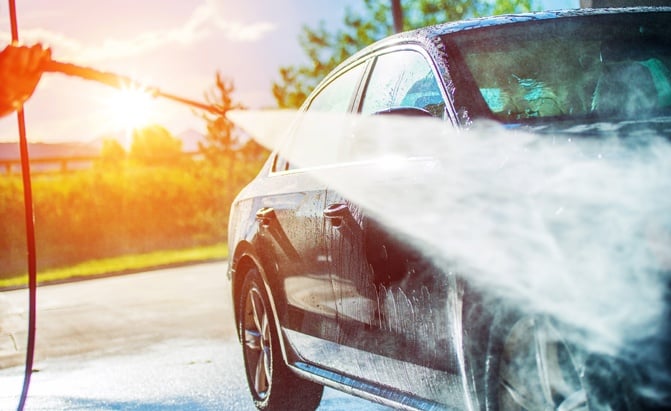
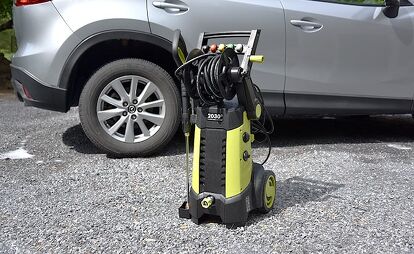






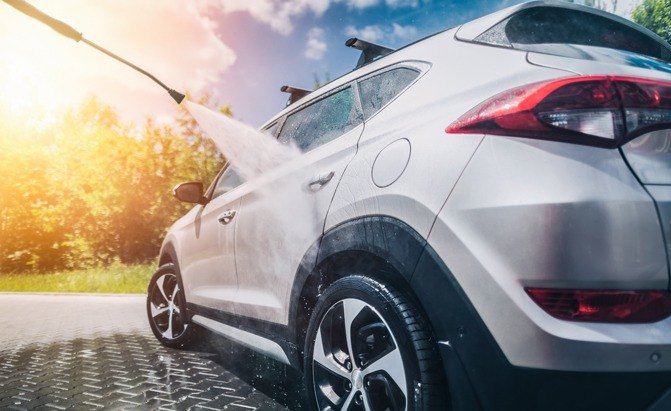

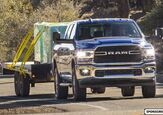












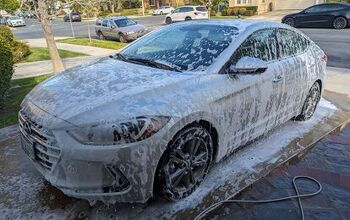
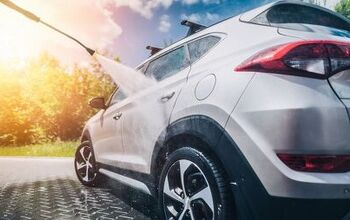
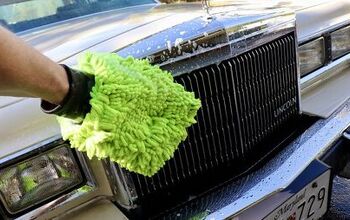
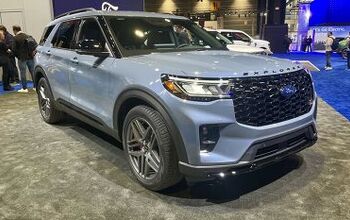

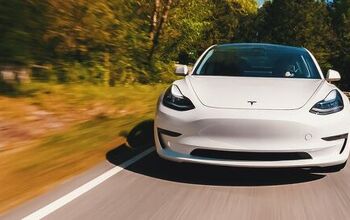

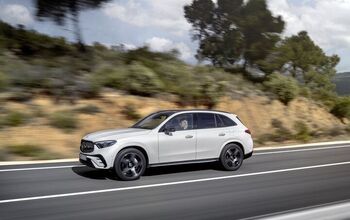
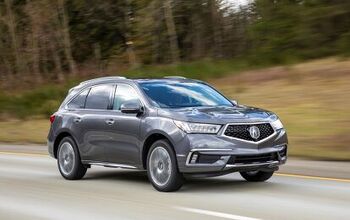
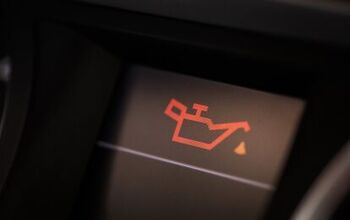
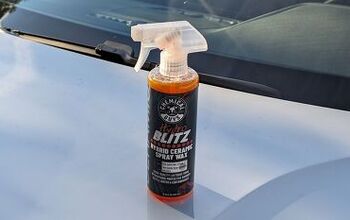



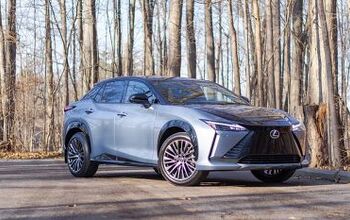
Comments
Join the conversation